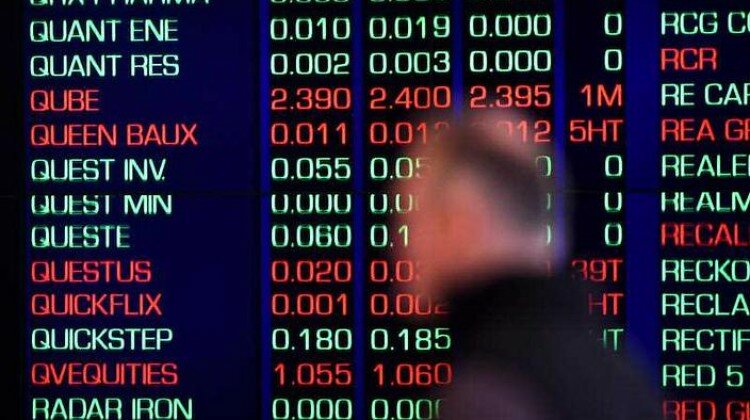
SYDNEY/WELLINGTON, August 24 (Reuters) – Australian shares fell 2.6 percent on Monday to their lowest level in 1-1/2 years on Monday as fears of a sharp economic slowdown in China triggered a fresh wave of selling in global equity markets.
The state’s pension fund was said to have bought stocks last Wednesday, when the Chinese indices swung from an intra-day loss of more than 5 per cent, to a gain of 1.2 per cent by close.
“There are not any strong macro reasons for a rally yet”.
“The Chinese investment-led growth game is over… whilst the US struggles to see signs of inflation despite five years of zero interest rates”, said Mark Lennox, senior private adviser at HC Securities.
But Craig James, chief economist at CommSec, warned against overreacting to China’s woes and to growing uncertainty over Greece’s ability to implement austerity measures and reforms agreed as part of its recent bailout package.
The Australian market last plumbed such depths in July 2013.
Banking giants including the Commonwealth, Westpac, National Australia Bank and ANZ along with the big miners Rio Tinto and BHP Billiton all shed about two per cent each.
He also believed worries about Greece and China were overrated.
“The futures market is pointing to a fall of around about 110 points or 2.2 per cent”, Mr James said. As of 0:33 a.m. EDT, the ASX 200 was trading down 3.36 percent at 5050 points, while the All Ordinaries was down 3.25 percent to trade at 5045 points. “Twelve months ago we saw significant declines in global markets and in a fairly short space of time markets have rebounded back earlier this year”, he said.
“(And) investors are reconsidering the prospect of a Fed rate hike in September, perhaps given concerns about China”, she said.
Local losses reflected worldwide market turmoil.
This is the steepest percentage drop since January 2009.
“Sentiment is shifting in a very negative way and you really are seeing no place to hide today”, said David Levy of Kenjol Capital Management.
“It seems like we’re seeing the makings of the 1997 Asian financial crisis all over, with emerging-market currencies plunging”, Nicholas Teo, a strategist at CMC Markets in Singapore, told Bloomberg News.